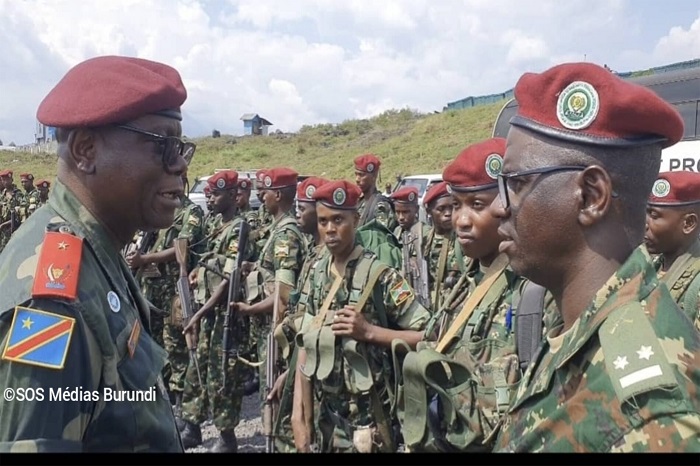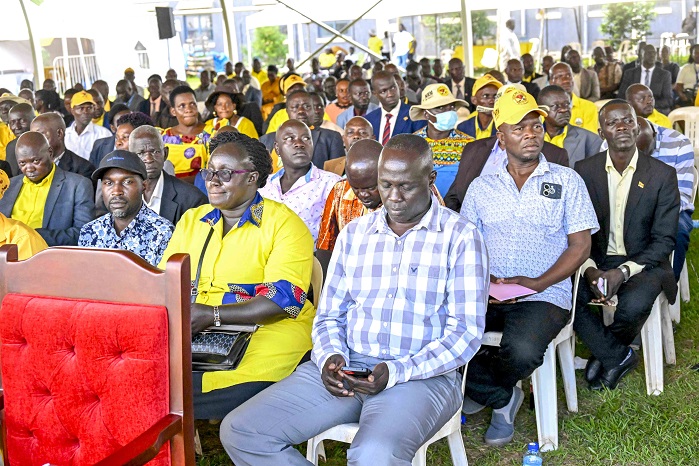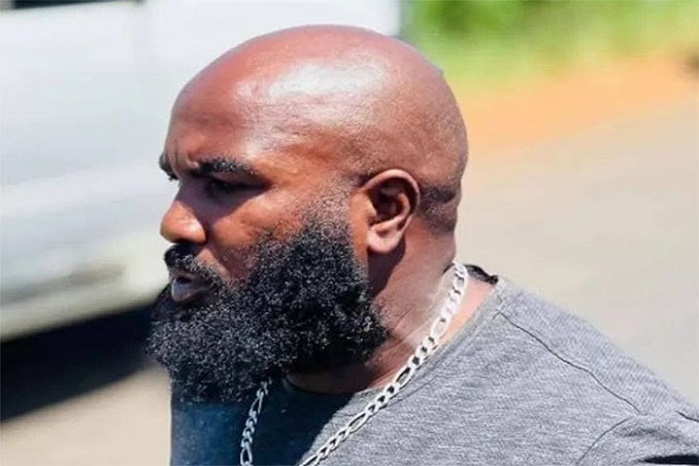
A Burundian army's contingent and trucks loaded with ammunition cross the Rusizi towards DRC
A Burundian army’s contingent and trucks loaded with ammunition cross the Rusizi towards DRC
HABARI DAILY I Kampala, Uganda I Burundian troops serving in the Eastern African Community Regional Force (EACRF) find themselves entangled in a web of accusations by M23 rebels operating in the eastern Democratic Republic of Congo (DRC). In a statement released this week, M23 rebels accused the Burundian forces of collaborating with armed groups linked to Rwandan genocidaires who sought refuge in the DRC after the 1994 Genocide against the Tutsi.
The allegations have sparked concerns over potential complications in the East African Community’s Regional Force, as the M23 rebels broaden their conflict beyond engagements with the Congolese army (FARDC) and the allied self-defense group, Wazalendo.
“The DRC government coalition forces, including FARDC, FDLR, mercenaries, militias, and Burundi national defense forces, have used the areas handed over to EAC to intensify their attack against the civilian population, burning villages, targeted killings, looting, and destruction of properties,” stated the M23 in a Tuesday press release.
Lawrence Kanyuka, the spokesperson for M23, expressed apprehension about the implications of Burundi, a member of the International Conference on the Great Lakes Region (ICGLR) and the current chair of the East African Community, being allegedly involved in violations of the ceasefire.
Colonel Floribert Biyereke, spokesman for the Burundian army, vehemently denied the accusations, describing them as “slanderous assertions” and a “serious insult” to the professionalism of Burundian troops. “The Burundian military has never collaborated with any armed group and never intends to do so,” stated Col. Biyereke.

He further expressed disappointment that the Burundian troops’ efforts in the DRC were being tarnished by baseless accusations. “Despite the efforts made by the Burundian troops in the DRC, it is deplorable that certain ill-intentioned people are making unfounded accusations,” he added.
Eastern DRC has been marred by the presence of over 100 armed groups, some originating from initial factions and others comprising foreign fighters. The M23, representing Rwandan ethnic communities, has been a source of perennial tension between Rwanda and the DRC.
The region had previously witnessed a directive under the Luanda Process, urging foreign fighters to leave the DRC and M23 to surrender conquered territories in exchange for a ceasefire and cantonment. However, allegations and counter-allegations persist between Kinshasa and Kigali, with each side blaming the other for violence and unrest.
Recent incidents on October 21 and October 30, where Burundian convoys were blocked by M23 rebels en route to Kitchanga and Mweso, have escalated tensions. The Burundian army warned of “necessary measures” to secure their position in response to these actions.
The allegations against Burundian troops have the potential to strain the recent efforts to normalize diplomatic ties between Rwanda and Burundi, with the two nations having experienced a period of strained relations since 2015. The international community will be closely monitoring developments in the region as efforts to address the complex dynamics continue.




